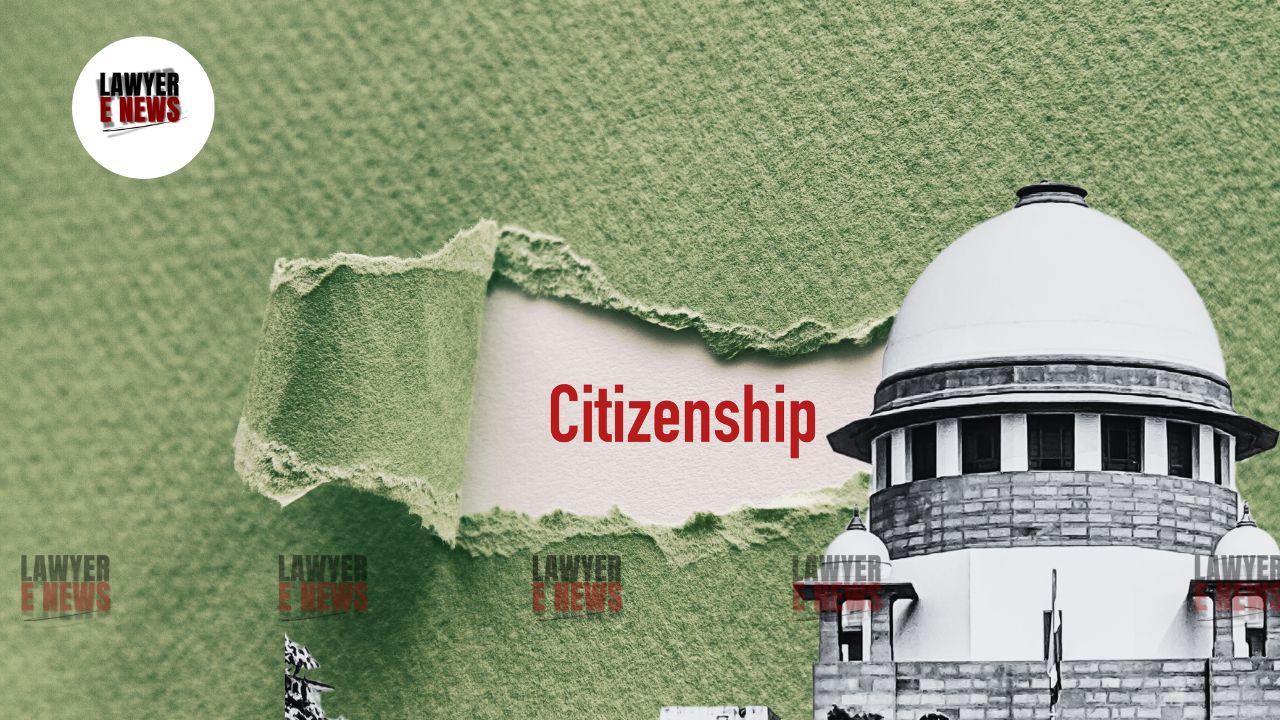-
by sayum
14 February 2026 2:22 PM



"Section 6A has acquired unconstitutionality with the efflux of time due to manifest arbitrariness in its structure and enforcement." Today, Justice J.B. Pardiwala delivered a dissenting opinion in the Supreme Court’s judgment on the constitutional validity of Section 6A of the Citizenship Act, 1955, concluding that the section, while valid at the time of enactment, has since become unconstitutional due to its arbitrary nature and inadequate implementation. Justice Pardiwala’s dissent stands in stark contrast to the majority view, calling for the prospective invalidation of Section 6A.
Section 6A’s Temporal Unreasonableness and Arbitrariness
Justice Pardiwala asserted that while Section 6A was enacted under special circumstances, specifically addressing the political settlement of the Assam Accord, the provision has grown unconstitutional over time. He pointed out that Section 6A(3), which fails to impose a temporal limit on its applicability, has rendered the mechanism of detection and deletion of immigrants inefficient, causing prolonged delays in resolving the immigration issue in Assam.
“The efflux of time has brought to light the element of manifest arbitrariness in the scheme of Section 6A(3) which fails to provide a temporal limit to its applicability,” observed Justice Pardiwala .
Disagreement on Burden of Detection and Procedural Failures
One of Justice Pardiwala's significant disagreements with Justice Surya Kant's majority opinion lies in the burden of detection placed solely on the State. He criticized this mechanism as counterproductive, noting that the lack of personal responsibility for registration in Section 6A, compared to Articles 6 and 7 of the Constitution, is a fundamental flaw.
“The onus of registration as well as the specification of a cut-off date, which were central to Articles 6 and 7, are absent from the scheme of Section 6A. This glaring absence renders the scheme of Section 6A arbitrary and as a result, unconstitutional,” Justice Pardiwala concluded .
Flawed Mechanism in Section 6A
Justice Pardiwala further criticized the flawed implementation of Section 6A, asserting that despite legislative provisions, illegal immigration into Assam persists, largely due to inadequate execution of detection and deportation processes.
"The inadequate implementation of Section 6A(3) of the Act is inextricably linked to the fallacious mechanism that has been prescribed under it," he noted, emphasizing the need for a robust and time-bound solution .
Differing View on Articles 6 and 7's Application
Contrary to Justice Surya Kant’s view, which aligned Section 6A with the fundamental purpose of Articles 6 and 7, Justice Pardiwala noted that these constitutional provisions required individuals to register themselves and set a clear temporal limit for obtaining citizenship—conditions absent in Section 6A. This, he argued, led to arbitrary outcomes and prolonged uncertainty for immigrants .
Justice Pardiwala ultimately declared Section 6A unconstitutional with prospective effect, acknowledging that while the provision may have been valid at the time of its enactment, its continued application without any temporal limitations or effective implementation mechanisms has led to manifest injustice.
Key Highlights from Justice Pardiwala's Conclusion:
Section 6A is declared invalid with prospective effect, but those who have already acquired citizenship under the section will not be affected.
Immigrants who entered Assam between 1966 and 1971 must still comply with existing procedures but will no longer benefit from Section 6A after this judgment .
This dissent introduces a significant constitutional debate on the validity of Section 6A in managing immigration in Assam and sets the stage for further discussions on India's citizenship laws.
Date of Decision: October 17, 2024
In Re: Section 6A of the Citizenship Act, 1955, Writ Petition (C) No. 274 of 2009
